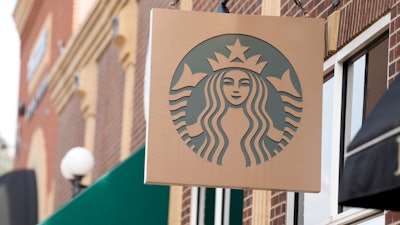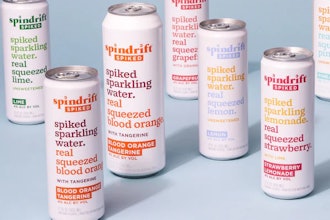
Starbucks lowered expectations for its full-year sales and profit Tuesday after a disastrous quarter that saw a slowdown in store visits across the world.
The Seattle coffee giant said revenue for the January-March period dropped 2% to $8.56 billion. That was far short of Wall Street's forecast of $9.12 billion, according to analysts polled by FactSet. It was the first time since the end of 2020 that the company saw a drop in quarterly revenue.
“Our performance this quarter was disappointing and did not meet our expectations,” Starbucks CEO Laxman Narasimhan said during a conference call with investors. Shares in Starbucks Corp. tumbled 12% Tuesday in after-hours trading.
Starbucks said a mix of issues impacted sales. In the U.S., the company saw a sharper and faster decline in consumer confidence and spending than it had anticipated. The Conference Board, a business research group, said Tuesday that U.S. consumer confidence fell for the third straight month in April as consumers continue to confront elevated prices and high interest rates.
Bad weather also closed some U.S. stores briefly during the quarter, Starbucks said.
In China, Starbucks said the post-COVID recovery has been choppy, and it's also seeing increasing price pressure from competitors.
Starbucks is also facing ongoing boycott of its stores for its perceived support of Israel in the war in Gaza. Customers in the Middle East and elsewhere began boycotting the brand in the fall after it sued Workers United, the union organizing its workers, over a pro-Palestinian message posted on a union social media account.
Starbucks has said that the lawsuit was aimed at stopping the union from using the company's name and logo, which it says confuses customers. Starbucks and the union have paused the court case and are now in mediation. But the company has also taken steps to undo the damage. Last month, Starbucks donated $3 million to World Central Kitchen to provide food aid in Gaza.
Starbucks said its same-store sales — or sales at stores open at least a year — dropped 4% in its fiscal second quarter. Wall Street had expected a 1% increase, according to analysts polled by FactSet.
In the U.S., customers spent more per visit, but that wasn’t enough to overcome a 7% decline in transactions. In China, the company’s second-largest market, same-store sales plunged 11%.
Starbucks said it now expects full-year same-store sales to be flat or fall by single-digit percentages, down from growth of 4% to 6%. It also said it expects full-year revenue growth in the low single-digit range, down from 7% to 10%. It's also forecasting flat to low-single digit earnings growth, down from 15% to 20%.
Narasimhan said Starbucks will try to boost U.S. store traffic this summer with new drinks, including the brand's first energy beverage. Later this year Starbucks plans to introduce sugar-free customization options for most of its beverages, another effort to draw in customers.
After a successful pilot, the company plans to start offering overnight service in many markets, Narasimhan said. And it's trying to improve product availability and service speed. Narasimhan said Starbucks lost some customers because of short supplies of its potato, cheddar and chive bakes after introducing them earlier this year.
Narasimhan also said Starbucks plans to open its Starbucks Rewards app to non-Rewards customers in July so they can take advantage of the deals it offers. Narasimhan said that change is aimed at occasional customers whose visits to Starbucks dropped off during the last quarter.
“In this environment, many customers are being more exacting about where and how they spend their money,” Narasimhan said. “We need to be able to reach and communicate with our customers in a way that demonstrates our value.”
Starbucks’ net income dropped 15% to $772.4 million, or 68 cents per share. Wall Street had expected an 80-cent per share profit.
Starbucks' comments were echoed earlier Tuesday by McDonald's, which also reported lower traffic in key markets like the U.S. and the United Kingdom as inflation-weary customers eat out less often. Like Starbucks, McDonald's said it plans to boost deals and messaging about product value.






















